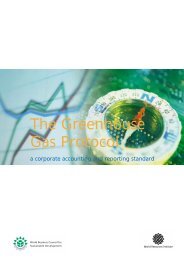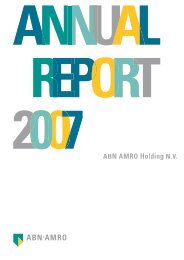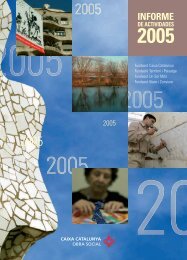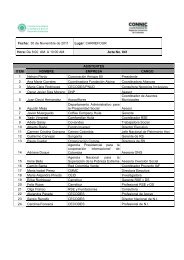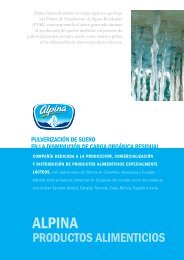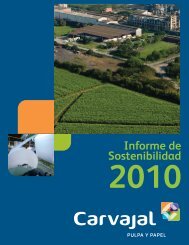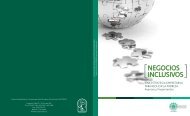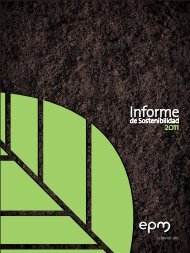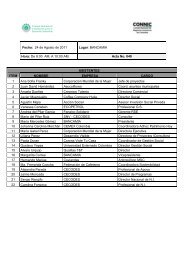Setting new standards - Friends Life
Setting new standards - Friends Life
Setting new standards - Friends Life
You also want an ePaper? Increase the reach of your titles
YUMPU automatically turns print PDFs into web optimized ePapers that Google loves.
FINANCIAL STATEMENTS<br />
IFRS FINANCIAL STATEMENTS<br />
EEV SUPPLEMENTARY INFORMATION<br />
Notes to the parent company accounts<br />
1. Accounting policies<br />
1.1 Basis of preparation<br />
<strong>Friends</strong> Provident plc (the Company) is a limited liability company,<br />
incorporated in the UK, whose shares are publicly traded.<br />
The financial statements have been prepared in accordance with<br />
applicable accounting <strong>standards</strong> and under the historical cost<br />
convention as modified by the revaluation of investments as set out<br />
in note 1.2.3.<br />
The Company has continued to present individual financial<br />
statements prepared on a UK Generally Accepted Accounting<br />
Practice basis as permitted by section 226(A) and Schedule 4 to the<br />
Companies Act 1985 of adopting the exemption of omitting the<br />
profit and loss account as permitted by section 230 of that Act.<br />
All accounting policies have been reviewed for appropriateness in<br />
accordance with Financial Reporting Standards.<br />
In accordance with FRS 1, the Company is exempt from the<br />
requirement to prepare a cash flow statement on the grounds that<br />
this is provided in its consolidated financial statements.<br />
1.2 Significant accounting policies<br />
1.2.1 Investment return<br />
Investment return excludes revaluation of group investments, and<br />
includes dividends, interest, rents, gains and losses on the realisation<br />
of assets and unrealised gains and losses. Such income includes any<br />
withholding tax but excludes other tax credits, such as attributable<br />
tax credits. Income from fixed-interest securities together with<br />
interest, rents, and associated expenses are accounted for in the<br />
period in which they accrue. Dividends are included in the profit and<br />
loss account when the securities are listed as ex-dividend. Realised<br />
gains or losses on investments are calculated as the difference<br />
between the net sale proceeds and original cost. Unrealised gains<br />
and losses on investments represent the difference between the<br />
valuation of investments at the balance sheet date and their original<br />
cost, or if they have been previously revalued, the valuation at the<br />
last balance sheet date. The movement in unrealised gains and<br />
losses recognised in the period also includes the reversal of<br />
unrealised gains and losses recognised in earlier accounting periods<br />
in respect of disposals in the current period.<br />
1.2.2 Taxation<br />
Taxation is based on profits and income for the period as determined<br />
in accordance with the relevant tax legislation, the movement in<br />
deferred tax and adjustments to prior periods’ tax.<br />
1.2.3 Valuation of investments<br />
Investments are shown in the balance sheet as follows:<br />
(i) Unlisted investments are valued by the directors, having regard<br />
to their likely realisable value.<br />
(ii) Listed and other quoted investments, including those in<br />
participating interests, are carried at bid value at the balance<br />
sheet date.<br />
(iii) Shares in Group undertakings are stated at current value.<br />
Revaluation gains and temporary diminutions in value are<br />
recognised as a transfer to the revaluation reserve.<br />
Revaluation losses, and their reversal, are recognised in the<br />
profit and loss account.<br />
1.2.4 Share based payments<br />
The Company operates share based payment schemes for employees<br />
of the Group, depending on eligibility. The fair value of these equitysettled<br />
share based payments is measured at the grant date, and the<br />
cost is borne by the subsidiary companies. The fair value is added to<br />
the cost of the Company’s investments in its subsidiary undertakings<br />
and a corresponding credit is made to reserves.<br />
1.2.5 Interest-bearing loans and borrowings<br />
Borrowings are recognised initially at cost, being the fair value of the<br />
consideration received, net of transaction costs incurred, and<br />
subsequently stated at amortised cost. Any difference between the<br />
proceeds, net of transaction costs, and the redemption value is<br />
recognised in the profit and loss account over the period of the<br />
borrowings, using the effective interest method.<br />
Convertible notes that can be converted to share capital at the<br />
option of the holder, where the number of shares issued does not<br />
vary with changes in their fair value, are accounted for as compound<br />
financial instruments. Compound financial instruments are split and<br />
recorded respectively within each of its two components, equity and<br />
liability. Transaction costs that relate to the issue of a compound<br />
financial instrument are also allocated to the equity and liability<br />
components in proportion to the allocation of proceeds. The equity<br />
components of the convertible notes are calculated as the excess of<br />
the issue proceeds over the present value of the future interest and<br />
principal payments, discounted at the market rate of interest<br />
applicable to similar liabilities that do not have a conversion option.<br />
The equity component is recognised and included in shareholders’<br />
equity, net of tax effects. The fair value of the liability component is<br />
recorded on an amortised cost basis until extinguished on<br />
conversion or maturity of the bonds.<br />
The interest expense recognised in the profit and loss account under<br />
interest payable is calculated using the effective interest rate method.<br />
186 <strong>Friends</strong> Provident Annual Report & Accounts 2006



